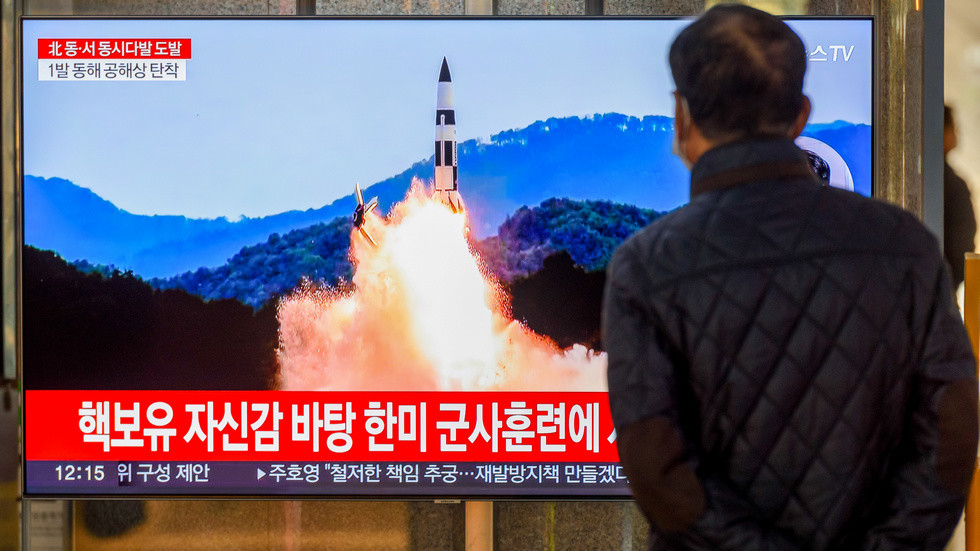World
Record-Breaking ICBM Test by North Korea Raises Security Concerns

In a historic move, North Korea has launched its longest-ever ICBM, intensifying tensions and raising global security questions. Discover the details and implications.
According to the state-run KCNA news agency, North Korea has launched an intercontinental ballistic missile (ICBM) as a warning to its regional rivals.
In a statement on Thursday, the Defense Ministry spokesman in Pyongyang labeled the test as “crucial,” noting that it was directed by North Korean leader Kim Jong-un. The missile launch “enhanced recent records of the DPRK’s strategic missile capabilities and showcased both the modernity and reliability of its most formidable global strategic deterrent,” added the spokesman. North Korean officials did not disclose specific details about the type of ICBM or share any technical information.
Kim asserted that the test “serves as an appropriate military action aimed at informing our rivals, who have deliberately heightened regional tensions and threatened the security of our Republic recently.” The North Korean leader accused Pyongyang’s regional adversaries of engaging in a “dangerous tightening of their nuclear alliance and various adventurous military maneuvers,” emphasizing that these actions “underscore the crucial need to bolster our nuclear forces.”
South Korea’s Joint Chiefs of Staff (JCS) verified the launch, noting that the intercontinental ballistic missile (ICBM) was fired on a “lofted trajectory.” This means it flew at a steep angle to maximize altitude rather than covering horizontal distance, heading towards the East Sea.
READ ALSO: North Korean Troops Would Be a ‘Legitimate Target’ in War, Says US
Japanese Defense Minister Gen Nakatani stated that the missile landed approximately 300 kilometers west of Okushiri Island, noting it was “the longest-duration flight for any missile launched by North Korea to date.” According to officials from South Korea and Japan, the missile’s flight lasted 87 minutes, reaching an altitude of up to 7,000 kilometers while covering a horizontal distance of 1,000 kilometers.
The US Indo-Pacific Command criticized the test, urging North Korea “to refrain from further unlawful and destabilizing acts.” However, it noted that the launch did not pose an “immediate threat” to US personnel, territory, or its allies.
Although North Korea frequently carries out missile tests due to ongoing tensions with South Korea and the United States, an ICBM launch remains a comparatively uncommon occurrence. The most recent test of this kind occurred in December 2023, when the missile traveled approximately 1,000 kilometers during a flight lasting 73 minutes.
North Korea has consistently criticized joint military exercises conducted by the US and South Korea, interpreting them as potential invasion rehearsals. Earlier this month, Pyongyang accused Seoul of disseminating propaganda leaflets. Subsequently, North Korea demolished a section of road and railway near its border with South Korea.
